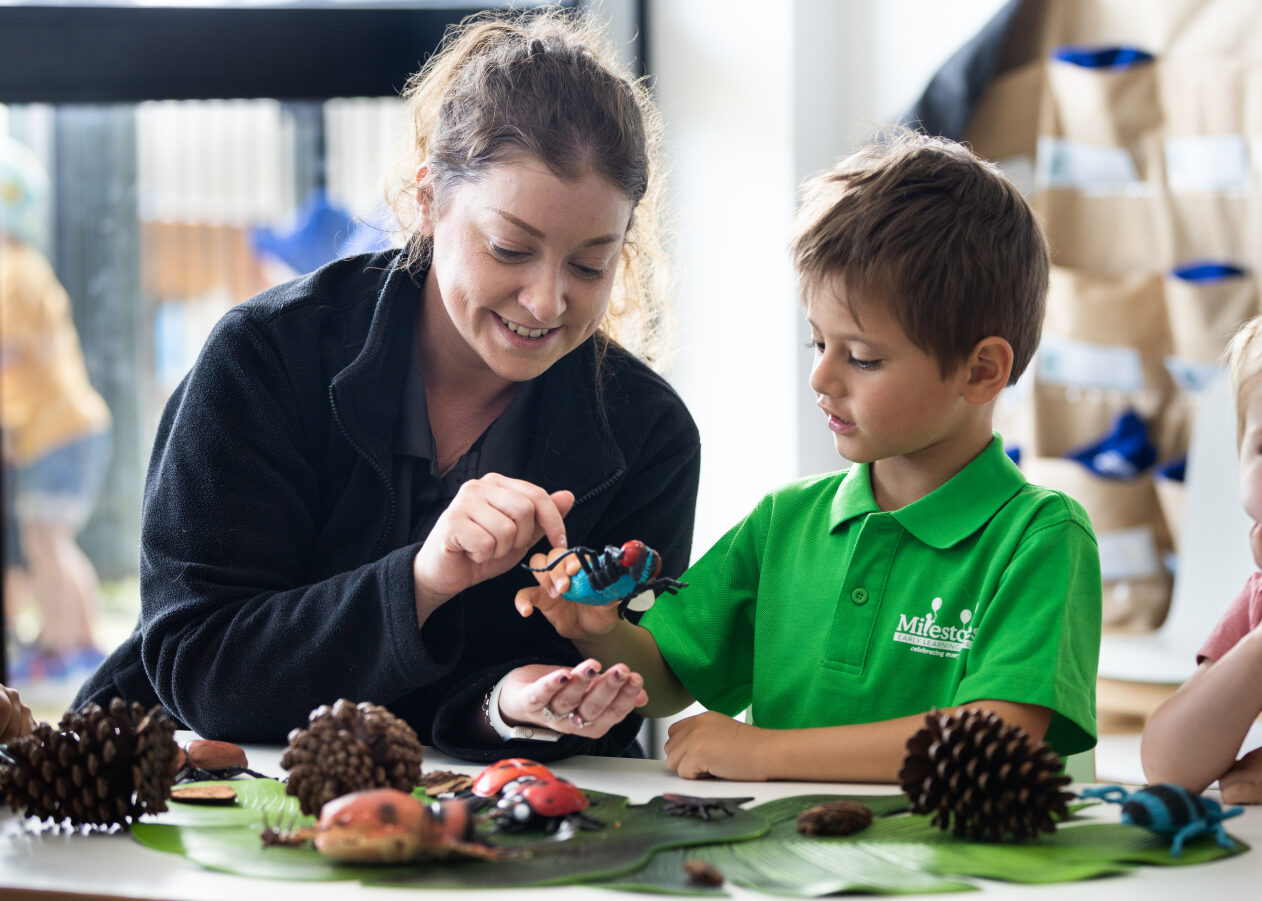
Welcome to the sixth instalment of our National Quality Standards seven-part series, where we provide an in-depth look into the seven quality areas benchmarked against the Australian Children’s Education and Care Quality Authority (ACECQA) standards.
Quality Area 6 focuses on supportive, respectful relationships with families which are fundamental to achieving quality outcomes for children. Community partnerships that are based on active communication, consultation and collaboration also contribute to children’s inclusion, learning and wellbeing.
Families are the primary influence in their children’s lives; they often have strong beliefs and values regarding the education and care of their children. When families and services collaborate and build respectful relationships, children have the opportunity to develop a positive sense of self and experience respectful relationships.
Partnerships involve educators, families, other professionals, community members and teachers in schools working together for the best interests of children.
Aboriginal and Torres Strait Islander peoples are the longest surviving Indigenous culture in the world and the custodians of this land. Through genuine and sustainable partnerships with Aboriginal and Torres Strait Islander communities and organisations, as well as culturally responsive practices, educators can ensure the history and culture of Aboriginal and Torres Strait Islander peoples is respectfully and truthfully reflected throughout the service and its program, for the benefit of all children.
Quality Area 6 has two Standards that support building collaborative partnerships with families and communities to enhance children’s inclusion, learning and wellbeing as they transition through the early years into school and/or attend outside school hours care services. These Standards are crucial to delivering quality outcomes for children under the National Quality Framework because:
- authentic family engagement encourages the active participation of each child and their family in service decisions and the educational program
- reflecting on inclusive practice helps the service to identify and remove potential barriers to an inclusive environment and support the wellbeing of all children and families
- community engagement helps the service to build relationships between each child, the families of the service and the community they reside in, and encourages each child to develop their identity within the context of their local community
- as well as enriching programs, practices and policies, it provides an opportunity to support children to respect and value diversity.
Standard 6.1: Supportive relationships with families
Standard 6.1 acknowledges that the family is the most powerful influence on each child’s life and that learning outcomes are most likely to be achieved when educators work in partnership with families to ensure the experiences planned for children are meaningful (Early Years Learning Framework; Framework for School Age Care). This Standard also recognises that each family’s wellbeing and capacity to nurture and support their children, is influenced by the community in which they live and the material resources and social supports available to them.
Educators recognise the diversity of families and that families are children and young people’s first and most influential teachers. They create a welcoming and culturally safe and responsive environment where all children and young people and their families are respected regardless of background, ethnicity, languages spoken, religion, family makeup or gender (Early Years Learning Framework: Framework for School Age Care).
Children have diverse understandings of ‘family’ and unique relationships with those who feature prominently in their lives. Services that reflect on what the concept of family means to each child can nurture the important relationships that exist between children and their families. For example, services need to recognise the importance of extended families, kinship systems, carers and guardians in children’s lives.
Effective, respectful communication between educators and families builds shared understanding of each other’s expectations and attitudes, and builds on the strength of each other’s knowledge. When educators respect the diversity of families and communities, and the aspirations they hold for their children and young people, they can nurture and foster children and young people’s wellbeing, learning, and development (Early Years Learning Framework; Framework for School Age Care). Sometimes family aspirations and expectations can be in conflict with service philosophy and practice. Open, respectful and non-judgmental communication between educators and families builds a shared understanding of children’s learning and participation.
Collaborative partnerships with families contribute to building a strong, inclusive community within the service. Respectful, honest and open two-way communication with educators assists families to feel connected with their children’s experience in education and care and helps them develop trust and confidence in the service. The service also supports families in their parenting role by becoming a reliable source of practical information about resources and services within the local community and by helping families to understand what constitutes quality practice.
Standard 6.2: Collaborative partnerships
Standard 6.2 recognises the connections between children, families, the service and communities and the importance of reciprocal relationships and partnerships in enhancing all children’s inclusion, learning, development and wellbeing (Early Years Learning Framework; Framework for School Age Care).
When working with families, the service understands the importance of seeing families in the context of their participation in the local community and wider society. Services can also establish and maintain an active presence in the local community, seek to strengthen community links and use community resources to support families. This supports the inclusion of all children in their community and broadens children’s understanding of the world in which they live and of Aboriginal and Torres Strait Islander history and culture within the context of their own community. Educators work to build trusting relationships with families, Elders and communities so that histories, stories and languages, as well as the local knowledge of how the Traditional Owners care for and sustain the land, are shared with all children (Early Years Learning Framework; Framework for School Age Care).
Open communication and collaboration between the service, families, Aboriginal and Torres Strait Islander Elders and community members, and other professionals within the community can be mutually beneficial.
